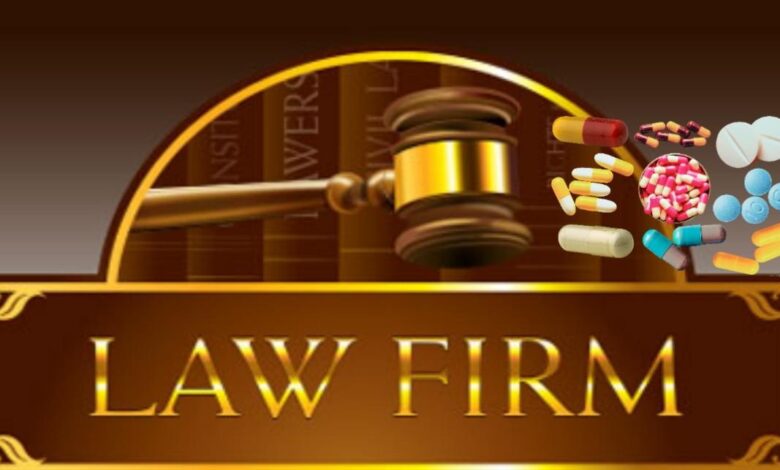How to Choose a Good Drug Induced Injury Lawyer?

Finding a good drug injury lawyer or attorney can sometimes be complicated, an inexperienced lawyer can make rookie mistakes that can cause a victim of a drug-induced injury to lose out completely. In contrast, an experienced drug injury lawyer can secure a favorable judgment in a case that looks seemingly difficult or impossible to win.
There are many experienced lawyers across the country. The following qualities will help you pick a good drug injury lawyer that will help you successfully pursue your case:
Previous history of success in drug injury cases: Whether it is a case of drug-induced liver injury or kidney damage, the appropriate level of experience in the pharmaceutical and medical device sector is one of the most critical criteria in selecting a drug injury lawyer. You want a lawyer with a track record of success with your type of problem. Such a record of experience will increase the likelihood that the attorney can help resolve your problem successfully.
Read client testimonials and real-life case studies to find out exactly how the lawyer has been able to help people who were affected in a similar way to yourself. It is also a good idea to look out for any statistics and data on the lawyer’s website that back up their claims of achievement such as the monetary amount in damages obtained for clients within a given time period, and their success rate in settling cases. Experienced drug injury lawyers will be accredited within their field of expertise. Look out for evidence of recognition and accreditations.
Communication skills: Many legal issues involving drug injury arise from miscommunication. Data indicates that of the 23,000 medical malpractice lawsuits filed between 2009 and 2013, communication failures were a contributing factor in 7,149 of those cases, amounting to 30% of the total. That percentage was responsible for 1,744 deaths, $1.7 billion in hospital costs, and 37% of high-severity injury claims. You will not want double jeopardy when it comes to communication with your lawyer.
Attorneys are paid to communicate with their adversaries and those sitting in judgment of their cases. Equally important, however, is finding a lawyer who can effectively communicate with you. You want an attorney who anticipates your questions and keeps you abreast of the developments in your case without you having to call first.
The attorney should have the ability to communicate in an organized and understandable manner. The attorney should have a good “bedside manner” and have good judgment as to when in-person communications or e-mail is most appropriate. The attorney should also realize that over-communicating may be unnecessary and not cost-effective.
Geographic consideration: Drug laws vary by state. This means you should look for someone in your area who is familiar with the region’s legal requirements. If you happen to live in a rural area with limited resources, you can use other methods of contact, such as phone or email, to discuss smaller issues. With larger legal matters, or for long-term counsel, it’s important to find someone close to you so that you can develop a trusted, face-to-face relationship.
Obviously, length of service, number of drug injury cases and geographic area, and prior results are important matters to consider in evaluating the attorney’s “geographical experience.” Along with experience comes knowledge of the adversaries and personalities involved in a case cumulative wisdom and perspective to evaluate risks and develop winning strategies related to a particular problem and confidence to steer you through the twists and turns of the legal process.
Cost of litigation: When it comes to drug injury, the cost will be a factor when you’re choosing an attorney. How much you are willing to spend is up to you. You can gather more information beforehand by asking the lawyer for a quote, as well as how they bill their clients. It could be an hourly fee, a flat rate, a contingency fee, a negotiable fee, or possibly even a retainer for future fees.
Find out if the fee includes expenses (such as shipping, filing, and travel) because these costs are not always treated the same and could be billed separately.
If you are not satisfied with the quote or the cost does not suit your budget, shop around and ask the same questions. When you do settle on a firm or a lawyer, always make sure the cost terms are clear and don’t be afraid to talk about price, so there are no surprises. You may even wish to confirm all costs in a written agreement.
In the alternative, you can opt to join a class-action lawsuit against the pharmaceutical or medical device company. A class-action lawsuit is a civil lawsuit brought on behalf of a group of people or business entities who have suffered common injuries as a result of the defendants’ conduct, with at least one individual or entity acting as a representative of that group. It does not cost anything to be part of a class action. In most class actions, the lawyers handling the case only receive a fee if they obtain a favorable result. In general, any legal fees will be deducted from the settlements or court award.





